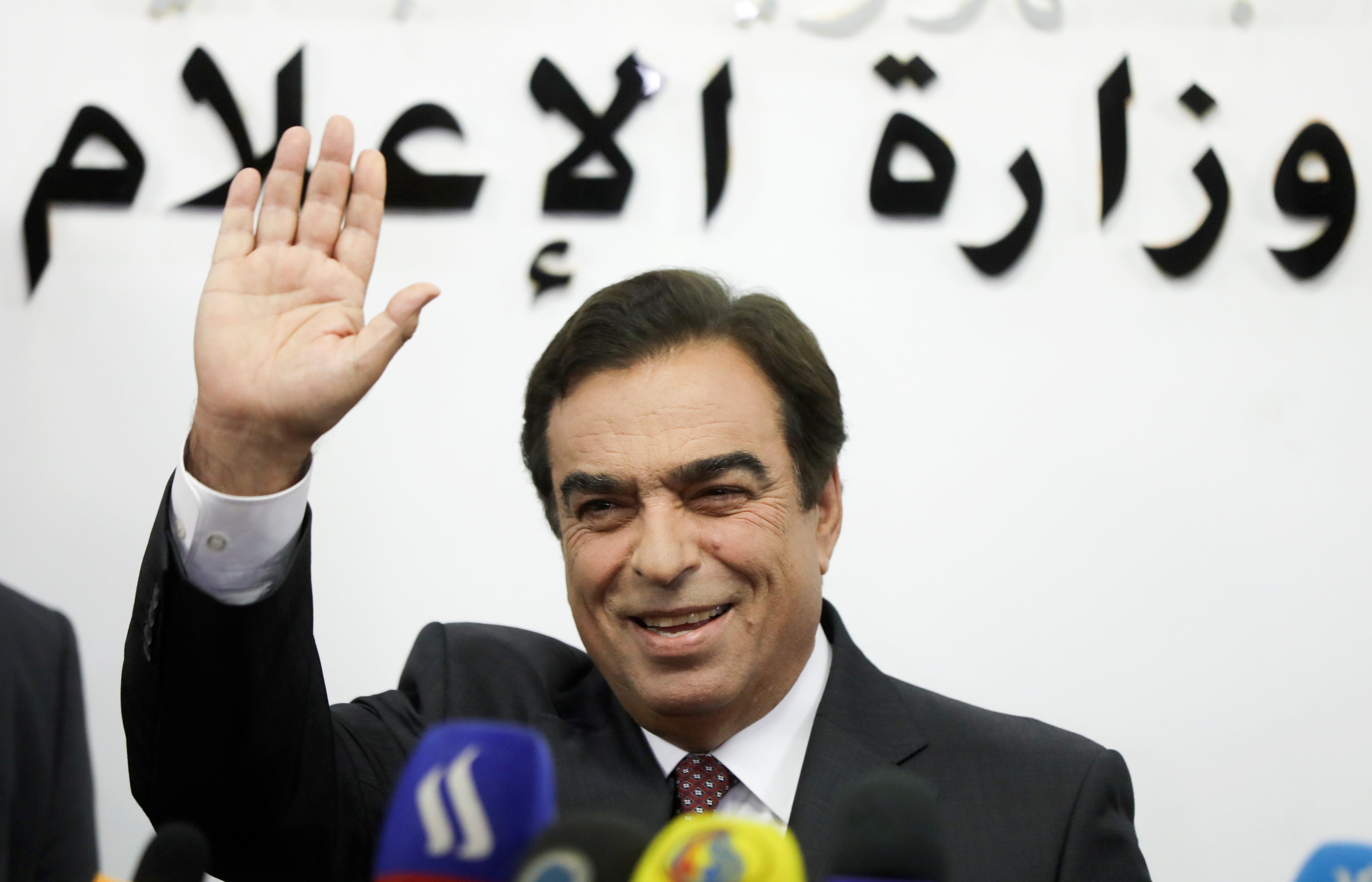Lebanon minister resigns in bid to defuse row with Saudi Arabia
Mr Kordahi’s resignation comes as France’s President Macron visits the Gulf to push for a settlement

Lebanon’s Information Minister George Kordahi resigned on Friday, saying he was putting the national interest above personal ones in a bid to ease a major diplomatic crisis with Saudi Arabia and other Gulf states.
Mr Kordahi said he understood that French President Emmanuel Macron has demanded his resignation before his Saturday visit to Saudi Arabia, where he is expected to encourage the Saudi Crown Prince and de facto ruled Mohamed bin Salman (MBS) to end the crisis.
Mr Macron is currently in the UAE, where he was expected to raise Lebanon’s crisis with the powerful Abu Dhabi Crown Prince Mohammed bin Zayed. Later on Friday, he will visit Qatar.
The French President said on Friday he hoped there would be progress on the crisis in the next hours.
“We will do all we can to re-engage the Gulf regions for the benefit of Lebanon... I hope the coming hours will allow us to make progress.” Mr Macron said in the UAE.
A senior French official told reporters earlier this week that the president will discuss strengthening cooperation with Saudi Arabia and other Gulf countries “to prevent Lebanon from sinking even further”.
In a press conference in Beirut, Mr Kordahi said he was subject to a widespread malicious campaign on social media after criticising the Saudi-led coalition in the Yemen war weeks before he took office.
In a TV interview in August, he said the conflict in Yemen was futile and had to stop, condemning it as aggression by Saudi Arabia and its allies.
Saudi Arabia, The UAE, Kuwait and Bahrain recalled their ambassadors to Beirut in protest. Riyadh has also banned all Lebanese imports, affecting hundreds of businesses and cutting off hundreds of millions of dollars to Beirut, which is already facing an economic meltdown.
The unprecedented economic crunch devastated the Lebanese Lira and plunged the population of six million, including a million Syrian refugees, into severe poverty. The economy has recently become almost entirely dependent on remittances and other sources of cash from abroad.
One major source of cash and investment has been the energy-rich Gulf countries, where hundreds of thousands of Lebanese workers send their monthly income back to their families.
Mr Kordahi had initially refused to resign, delaying any hope of a breakthrough in the row.
But, on Friday, he said he would step down“based on new developments” and because “Lebanon’s interests are more important than mine.”
He also announced that Lebanese Prime Minister Naguib Mikati received Mr Macron’s assurances that he would push in Saudi Arabia for a settlement, but Mr Kordahi had to go before he meets MBS.
The Yemen war has been going on since the rebel Shia Houthi group took over the capital Sanaa in 2014 and kicked out President Abdrabbuh Mansur Hadi’s internationally recognised government. Saudi Arabia, the UAE and others intervened in 2015 to restore Hadi’s government, triggering what the UN says is the world’s biggest humanitarian crisis.
The current standoff is the tip of the iceberg of deep-rooted hostility between Saudi Arabia and Iran, with Lebanon caught in the middle.
In recent years, Saudi leaders became more alarmed over the increasing clout of their arch-enemy Iran-backed Hezbollah, which they say has almost total control over Lebanon’s government.
In October, Saudi Foreign Minister Prince Faisal bin Farhan said that dealing with Beirut was “pointless” due to Hezbollah’s influence.
“There is a crisis in Lebanon with the dominance of Iranian proxies over the scene,” he said.
The standoff paralysed the government, which has been unable to convene since October 12 amid reports that ministers allied with Hezbollah would resign if Mr Kordahi left.
It is not yet clear whether Kordahi’s resignation Friday would placate Saudi Arabia enough to reverse its decisions and prevent further escalation or whether it would open the door for Cabinet meetings to resume.
Subscribe to Independent Premium to bookmark this article
Want to bookmark your favourite articles and stories to read or reference later? Start your Independent Premium subscription today.

Join our commenting forum
Join thought-provoking conversations, follow other Independent readers and see their replies